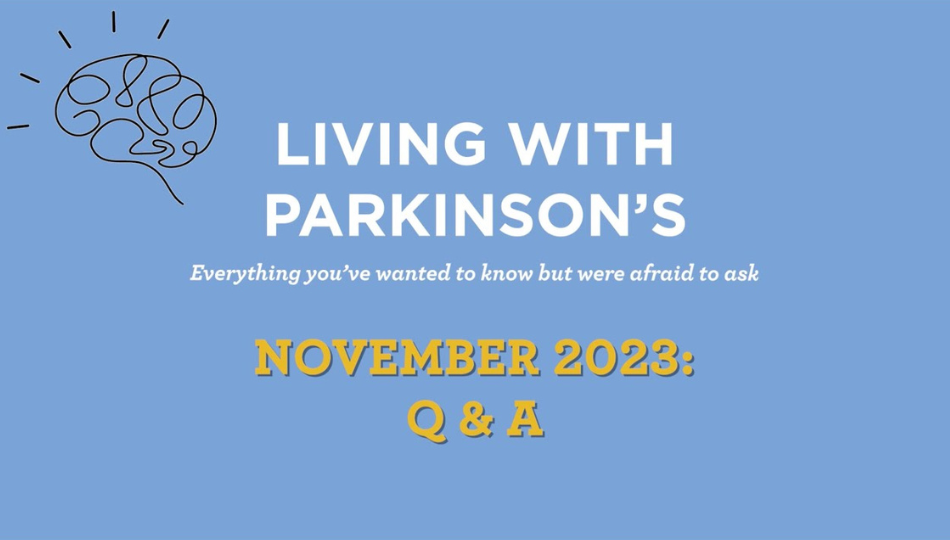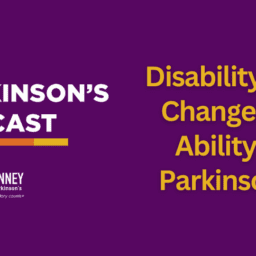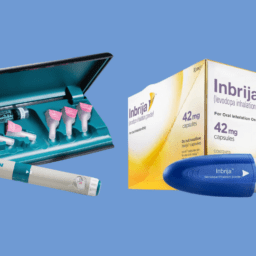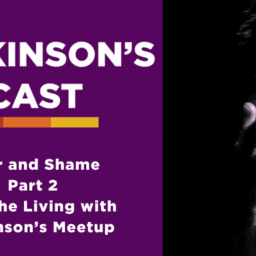The Living with Parkinson’s Meetup panelists receive questions each month that they just don’t have enough time to answer during the hour in which the meetups are held. For November, they worked through some of the questions to which they had not yet responded.
If you haven’t yet registered to attend the live meetups, you can do so here.
MEETUP NOTES
These notes highlight a few of the questions addressed in the meetup, but each question the panelists discussed during the meetup is listed below. The YouTube description of the video has these questions listed as timestamps, so if you view the video there, you can jump right to the question that most interests you.
What did or do you look for in a neurologist?
Establishing a relationship with your primary neurologist or movement disorder specialist is a major milestone in living well with Parkinson’s. Unfortunately, it can be hard to find someone who can see you in a reasonable amount of time or even near to where you live. Finding someone who can provide you with the type of care and attention you are most seeking can be even more difficult.
The central advice for those able to select their neurologist is to start by considering what you’re most in need of from your provider. A secondary part of this process is to understand that your needs are likely to change as your experience of Parkinson’s changes, so be prepared for the possibility of switching providers at some point.
Of course, as with every question they discuss, the panelists have different perspectives on this question. Check out the video to see what each panelist shared!
How did you navigate the variety of treatment options?
There is not one right answer for how to navigate Parkinson’s treatment decisions. Kat offered that you have to do your own research and “be your own scientist.”
Brian offered another critical piece of advice: Be very careful about how you interpret what you read online. Consider your sources and remember to listen your body and pay attention to how you respond to whatever treatments you take.
Keeping a log of when you take each medication and how you respond to it can be helpful; this can be even more helpful if you are able to take your doses at the same time every day.
Also, if you experience any behavior changes or unexplained side effects—even if you aren’t sure they’re related to your treatment—tell your doctor about it.
When Should I Start Medication?
When to being medicating is a personal decision and depends on your goals and circumstances. Sometimes, this question is asked with delaying dyskinesia or other complications in mind. Verschuur et al. (2019) examined the different effects of starting levodopa early. It’s worth a read, but the core message is that starting levodopa earlier does not appear to cause earlier onset of dyskinesia or other motor complications.
Two other considerations about when to start medication are whether you want to participate in clinical trials (some trials exclude participants who are taking medication) and whether your symptoms are preventing you from doing the things you want to do, particularly regarding exercise and things you like to do for fun.
What about Dopamine Agonist Withdrawal Syndrome?
A listener asked about what to watch out for when ceasing treatment with dopamine agonists. It is possible to have withdrawal-type symptoms—nausea, panic attacks, depression, pain, and more—when you stop taking dopamine agonists, so it’s essential to work closely with a physician to manage this process.
Several factors are associated with increased risk of withdrawal symptoms: higher doses of dopamine agonists, having an impulse control disorder associated with use of a dopamine agonist, and having had DBS.
Other Questions Discussed in the Episode
- How long can I/my person with Parkinson’s keep driving?
- How can I manage speech and swallowing issues?
- How can I improve my sleep and wake up more smoothly?
- Does DBS help with dystonia?
- How can I manage leg and gait dysfunction?
Find additional resources for these topics in the list of links below.
Next Meetup: December 21, 2023
We always welcome new questions! Please send them our way using this form or by emailing blog@dpf.org.
Additional Resources
Worksheets, Including Medication and Symptom Trackers
Webinar: Medical Myths and Parkinson’s
Dopamine Agonists Medication Guide
Impulse Control Disorders and Parkinson’s
Certified Driver Rehabilitation Specialists
NIH Article about DBS and Dystonia
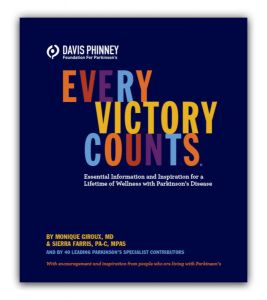 WANT MORE PRACTICAL ARTICLES LIKE THIS?
WANT MORE PRACTICAL ARTICLES LIKE THIS?
You can learn much more about living well with Parkinson’s today through our Every Victory Counts® suite of resources. Each manual is packed with up-to-date information about everything Parkinson’s. Click the link below to reserve your manual(s).
Thank you to our 2023 Peak Partners, AbbVie Grants and Amneal, and for their ongoing support of these must-have manuals. Additionally, we’d like to thank Barbara and Dale Ankenman, Abby and Ken Dawkins, Bonnie Gibbons, Gail Gitin in loving memory of Gene Gitin, Irwin Narter, and Lorraine and J Wilson for their generous donations that allow us to make these resources available and free to all.


